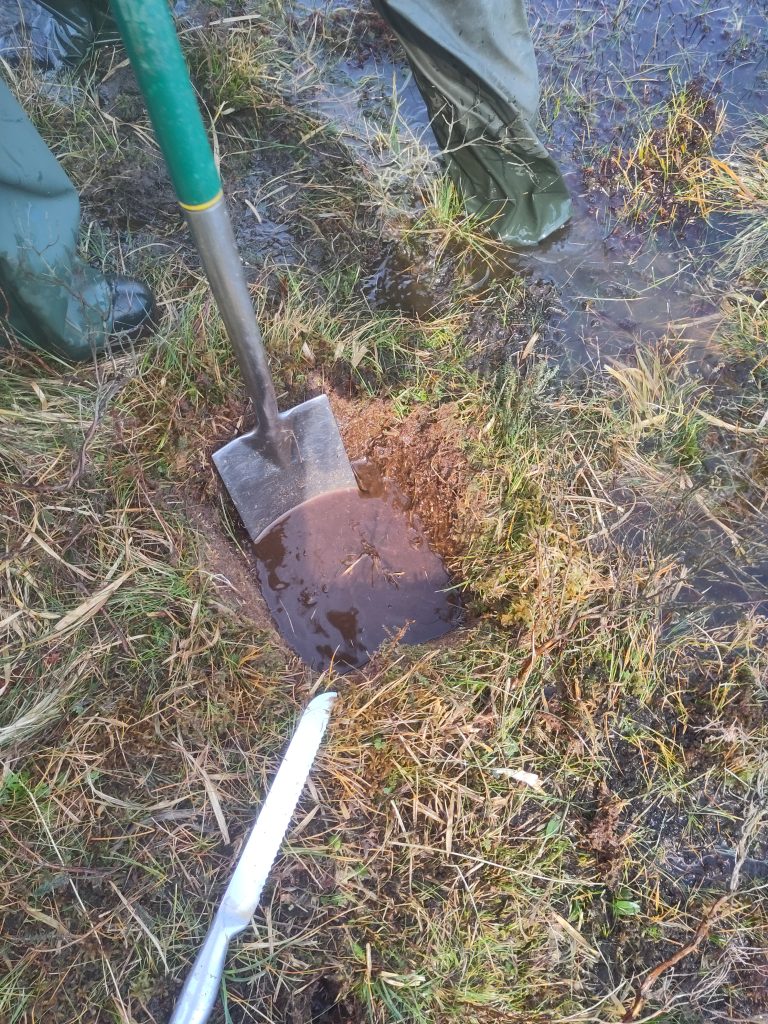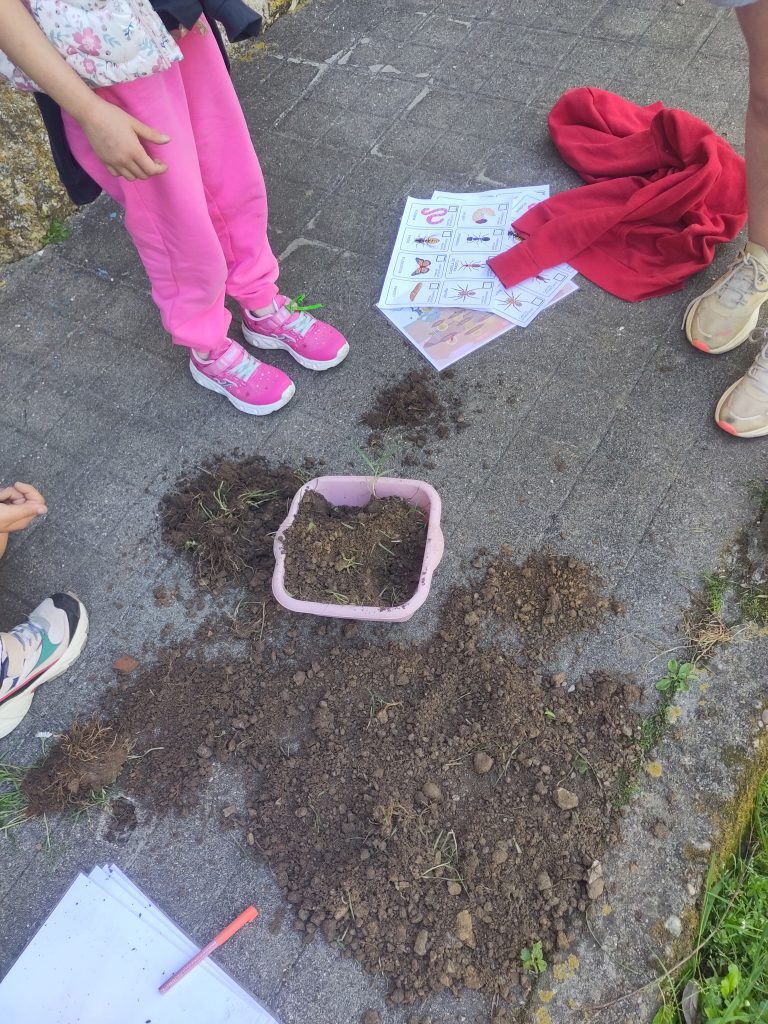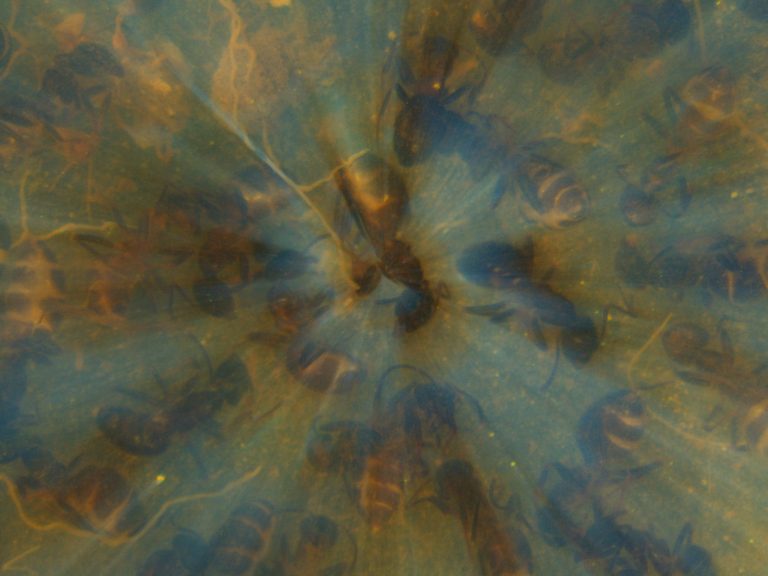About my access to academia and why we need to accept that the concept of a perfect scientist is a fallacy, far from reality, creating wrong expectations.
I am sharing here the path towards my PhD because it is not a straight one following the accumulation of one degree after another. In contrast to still predominantly prevailing linear academic paths and flawless CVs, there are many more possible paths. You find here why I think we need more diversity in our scientific curricula. Also, I want to share a few first observations as a newbie scientist and why I think we need to move towards a scientific culture, better accepting mistakes.



My path is a twisty one. While I recently graduated my PhD in Soil Ecology/Life Sciences and I always had an affinity for biology (it was my favorite subject in school, and I dreamed of becoming a marine biologist) and agriculture (the highlight of my summer and autumn was the harvest of my extended family’s vineyards, cherries, plums, and apples – not only because of the many fruits that didn’t make it into the basket), translating these passions into a career was not so obvious at first sight. It took me some decisions to change a safe path I was on. They helped me to filter out what I didn’t want. At least, most of those adjusted decisions brought very diverse characters along my way that I am very grateful for.
After completing my A-levels, there was this longing to get out of my small town, explore the world. At the same time, my parents were pushing me to continue studying straight away, and a gap year was not an option. My applications reveal my indecisiveness, ranging from medicine to psychology to political science to tourism management. I decided that it would be the university’s acceptance letter determining my future. A paid study option combining an undergraduate degree in tourism management with an apprenticeship as a hotel expert allowed me to afford a life in Munich while exploring the vibrant and colorful gastronomy and tourism world there. It also allowed me an Erasmus exchange semester in France, which opened up new perspectives in all directions: a new culture, new language, new friends.
Back in Munich, towards the end of the Bachelor’s, some fundamental life questions came up. I became vegetarian, read more spiritual books, and career doubts came up, questioning my fit in the tourism industry. At least, my thesis on the internalization of external costs of the hotel industry allowed me to critically assess an ongoing market failure. At that time, I already had thoughts of continuing with a Master’s in Sustainable Resource Management and going more in this direction. My parents as well as my professor at the time were advising me not to do it. In the end, money decided. I found an exciting, evolving internet-of-things startup, looking for somebody to start their marketing, handling everything from the website to advertisement to communication. While this time was fun and I learned a lot, after 1.5 years, I realized that the marketing/advertising/venture capital world was not for me either. It was at this point that I finally applied for the Master’s program at the Technical University of Munich.
Two great years expanding my horizon followed. Specializing in soil science and agriculture allowed me to enter fields I would never have thought possible without a corresponding bachelor’s degree. We visited different farms, assessed their sustainability, went on soil excursions to identify soil types, and analyze the soil in the laboratory. There was also this great course on wildlife conservation, posing crucial questions on the verge of culture and nature, which introduced me to Aldo Leopold and his great work.



Through an additional voluntary course in “Ethics in Agriculture,” I got to know a professor for whom I started to work as a research assistant. Through her, I was introduced to a research project on seed biodiversity conservation, for which I could go for my internship to India, working with an NGO on the dissemination of traditional farming knowledge. While there, I interviewed farmers for my Master’s thesis, assessing the importance of soil biodiversity. I combined those practitioners’ voices with those of experts in science and industry. During the research for the thesis I came accross a very fitting PhD position on soil biodiversity and how its assessment can be enhanced in Europe. While Covid postponed the start of the PhD, I used the time between my Master’s degree and my PhD to work on several farms back home in the Black Forest. In my PhD, agricultural practices and their impact on soil organisms, as well as policy instruments impacting how food is cultivated in the European Union, played an important role. Apart from analyzing the theory, however, the practice was missing. This is why I used small gaps in my PhD to expand my practical knowledge on various organic farms via WWOOFing, gaining insights into how those are run and seeing different cultivation practices.
It’s the motivation that matters
I am not a perfect scientist. I do not have a biology degree and still work with soil organisms ranging from invertebrates to microorganisms. I study their diversity and use bioinformatic and statistical tools without ever learning those things in a university lecture. Somehow, my PhD worked out, and it seems as if I did not do too bad a job, managing to publish my work in peer-reviewed journals. What allowed me to do so, I would boil down to some skills that I learned along my way, which are more precious than often realized. I guess it is more about intrinsic motivation, curiosity to learn and understand processes, and some humility to accept the need for help and to not give up despite times of despair and obstacles in the way.
However, I am not sure if following a straight, linear academic career would have led me to this PhD. My observations are that some universities are great motivation-killers, taking away the allure and advantages of working in academia. The classical school system increasingly takes over universities, with younger students under more time pressure to finish as fast as possible. There is not much time for experimenting, finding themselves, and exploring left. This change considerably impacts research skills while often taking away the joy of research. It also hampers the intermingling of different disciplines and the creative evolution of new ideas and solutions.
The advantages of more diverse career paths
Academic careers can be twisty and that is ok. Sometimes it can even be more than ok, because in face of times of multiple crisis, we need diversity in our curriculums responding and adjusting quickly. More diverse groups with more diverse backgrounds allow more outside-the-box thinking. They might add more stakeholder viewpoints while increasing the empathy of the groups. Different life experiences allow to tackle a problem from different angles.
We have this value in our society that tries to avoid gaps in the CVs. While sabaticals are getting more seeked after in industry, they have their origin in academia. Here, it is a long tradition for more senior researchers (often limited to professor positions) to take the seventh year to reshape and reorient the own research goals. While this paid year should be used to recharge comparable to the Shabbat/fallow year in agriculture, these days, it also transforms more to a particularly high-performing year, with side-publications and grant applications. Also, such a sabatical is mostly reserved to more senior academics, while young researchers are under hard competition. For them, often the straight carreer-path is still seen as the only way to go. There is a certain rush, restlessness felt, comparing what age the PhD is finished, with also funding for PhDs getting reduced by cutting the funded years.
More diverse education paths for the future
While in science, a hard line is often drawn between Art degrees and Science degrees, more and more Master’s programs aim to break down those distinguishing borders, fostering multidisciplinary teams and careers in the long run. We need both specialists and generalists. Particularly in science, the latter are missing. This is why many important results and processes remain confined to the ivory tower of academia. More skilled scientific communicators are needed who can see both the big picture and understand new developments and research findings on the ground. What we want to teach our next generations is flexibility, creativity, and collaboration. In Einstein’s words:
“We must not only learn to tolerate our differences. We must welcome them as the richness and diversity which can lead to true intelligence.”
Albert Einstein
My PhD was not perfect, I made mistakes
My PhD was funded for 3 years. However, in Spain, the bureaucratic process of finishing a thesis takes around 3-4 months, leaving roughly a bit more than 2.5 years for actual research. That time coincided with a lot of new information to process, skills to learn (e.g., using data processing tools, programming with R), summer schools, conferences, etc. Also, in my case, it involved moving twice between Spain and Italy and also dealing with a tough Covid winter to start with. There are definitely some things in my PhD that could have been smoother, for example, by allowing a bit more time for research and also for doing things less simultaneously. However, it somehow worked out. Maybe I needed to send a correction to one of my published papers because my co-authors and I did not notice that the journal messed up a figure in the end. Also, a bit of a chaotic colleague managed to misspell my last name in a published article without the option to correct it. Also, maybe, whenever I open my thesis again, there will be a small mistake I notice. The important part is not to focus on those. I did my best, and it’s okay. I completed it in 3 years, and I think sometimes that is all that is possible under certain conditions. Not being perfect should not prevent people who may not be so-called ‘perfectionists’ from entering science.
Ciao, ego
In academia, there is this unreal expectation of people always doing flawless jobs. Scientists are not superhumans; they make mistakes too. Many of them work under high time pressures or with limiting conditions due to a lack of funding for staff or materials/machines. These restrictions further enhance the likelihood of mistakes. It is even more important to accept mistakes and, in the next step, to openly talk about them if they matter, to not harm the scientific learning process. It is necessary to move away from the ego in science. In a field that is highly connected to self-esteem, where comparing publications and impact factors of journals is part of the daily business, this is far from easy.
I am not advocating here for making more mistakes in science, but rather am saying that those mistakes happen and that they are unavoidable. The more we accept them, the easier we can talk about them and the easier we can move on from them. For better research, it is essential to prioritize research quality over one’s own ego.



